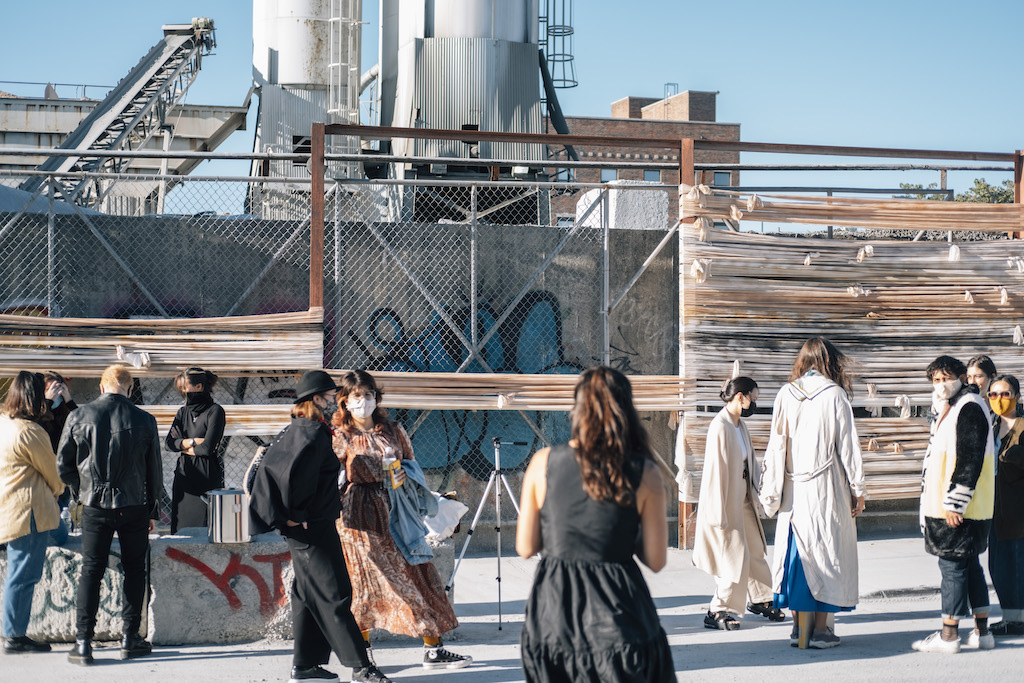
Artist Statement
María-Elena Pombo is an interdisciplinary artist with a research-based practice centered around participatory actions. Originally from Venezuela, she has been based in New York City since 2011. Her work has been exhibited at Somerset House (London, England), Mana Contemporary (Jersey City, USA), A/D/O (Brooklyn, USA), SXSW (Austin, USA), Yamamoto-Seika (Osaka, Japan), Fabbrica del Vapore (Milan, Italy), and more across the USA, Europe, Japan, and Latin America. Pombo won the 2021 London Design Biennale’s Theme Medal. She has received grants from New York Foundation for the Arts, New York Restoration project, National Onion Association, and more. Her work has been featured in The New York Times, The Slowdown, Metal Magazine, i-D Italia, Vogue México, Forbes, and the book ‘True Colors: World Masters of Natural Dyes”. Pombo is faculty at Parsons School of Design, teaching and developing curriculum for studio classes with a focus on research and experimentation. She was instructor at the Brooklyn Botanic Garden and the New York Botanical Garden, where she designed and taught classes on natural dyes through a decolonial and non-extractivist lens. She has lectured extensively internationally. Pombo is a graduate of Parsons School of Design (NYC), where she studied Fashion Design, and Universidad Simón Bolívar (Caracas), where she studied Industrial Engineering. Most recently, she finished a Diploma in Venezuelan History & Art from Universidad Metropolitana (Caracas).
I work with ubiquitous materials sourced through unconventional methods. From avocado seeds gathered by local restaurant workers, water collected by individuals around the world, tires provided by car repair shops, and more. A strategy to engage a heterogeneous public. I transform and recontextualize these materials into an ever-evolving body of work including public art, installation, performance, video, and more, collaborating both with traditional art spaces and unexpected spaces, such as an active concrete factory, a lumber warehouse, and more. I use these materials to start conversations around colonization, geopolitics, migration, anthropocentrism, and globalization, drawing from an intersectional research drawing from history, science, linguistics, legends, and more. I am interested in creating work that transforms them from spectators into participants and pushes them to ask themselves (and each other) questions that might give them different understandings of the past, and in turn empower them to co-imagine possible futures.